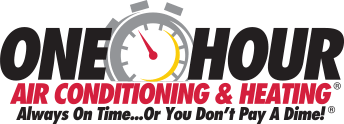
Dustin H. - President
Lifetime DFW Resident
FAQs

Frequently Asked Questions (FAQs)
Heating and cooling systems are integral in maintaining a comfortable temperature in your home. The constant starting, stopping, and continuous running can lead to unexpected breakdowns.
Preventative maintenance ensures your system is functioning optimally and can save you from costly major repairs. Maintenance inspections also alert you to indicators of a deteriorating system like soot, rust, rot, and corrosion.
Air conditioners come in various sizes, based on their cooling capacity for your home, measured in British Thermal Units (BTUs). A professional HVAC technician can perform a load calculation for your home or business, with most homes requiring a unit with a capacity between 12,000 and 21,000 BTUs.
When choosing a new HVAC system, focus on ratings like SEER, MERV, HSPF, and AFUE, which indicate energy efficiency and performance.
SEER represents how much energy you need to produce cool air, and new units must have a minimum rating of 14. MERV measures your air purifier’s effectiveness, HSPF gauges heat pump performance, and AFUE measures fuel efficiency when creating heat.
Most HVAC systems come with a warranty for a certain number of years. Check the bill of sale, contact the manufacturer online, or check the owners’ manual for warranty information. You will need the model number, serial number, and installation date of your unit when researching the warranty length.
Whether you need to replace both units depends on the specific problem with your air conditioning system. It’s advisable to set up an inspection with an air conditioning service company like One Hour Air Conditioning & Heating of Dallas, TX, for accurate diagnosis and repair or replacement estimates. In some cases, it’s beneficial to replace both units simultaneously for optimal performance.
The best system for you depends on the architecture, size, and usage pattern of your home. Ductless systems and heat pumps tend to be more efficient than central air units and are suitable if you don’t already have ductwork in your home.
Heat pumps can cool your house in the summer and heat it in the winter, making them ideal for areas with mild to moderate winters.
Modern air conditioners have an average lifespan of between 10 and 12 years. However, various factors can impact your system’s efficiency and longevity. Regular maintenance services can prolong the life of your unit and keep it running optimally for longer.
An air purification system can significantly improve your home’s indoor air quality by ensuring proper air circulation and filtering out dust, allergens, and germs.
You can ask an air conditioning service like One Hour Air Conditioning & Heating about air purification systems compatible with your current setup.
If your AC continually turns off and on, it could be due to an electrical problem. Check for consistent power to the outlet, and ensure the plug is firmly seated.
Regular maintenance services, including coil cleaning and refrigerant top-off, can help maintain your unit’s efficiency. It’s best to leave such maintenance to AC repair professionals.
Your AC may drip water due to condensation forming on the cooler evaporator coils as warm air from outside is drawn in. If water is dripping inside the house, it could indicate a problem with the installation.
Proper installation should prevent any water damage to your home.
Absolutely. Professional air conditioning service companies like One Hour Air Conditioning & Heating offer duct cleaning services. Regular duct cleaning can improve the quality of air circulating in your home and boost the efficiency of your heating and cooling system.
Emergency heating and AC repair services are available 24/7 to address urgent HVAC problems that can’t wait for normal business hours. Services like these ensure that any severe issues are promptly resolved to restore the comfort of your home.
An Air conditioning service company provides comprehensive services for your air conditioning system, including routine maintenance, repairing malfunctioning components, and installing new units. They ensure that your system runs optimally, keeping your home cool and comfortable.
The frequency of air duct cleaning can depend on several factors, including pets, allergies, recent renovations, and local weather conditions. However, a general rule of thumb is to have your air ducts cleaned every 3 to 5 years.
Air duct cleaning involves cleaning various heating and cooling system components of forced air systems, including supply and return air ducts, registers, grilles, diffusers, heat exchangers, and more.
A professional air duct cleaning service like One Hour Air Conditioning & Heating can provide this service for you.
Yes, emergency heating and AC repair services like those provided by One Hour Air Conditioning & Heating are available 24/7. No matter when an HVAC issue arises, emergency services are always ready to assist you.
When choosing a heating and air conditioning service company, look for licensed, insured, and certified professionals with positive customer reviews. The company should offer comprehensive services, including emergency services, and use high-quality, energy-efficient products.
Several issues could cause this problem. The furnace might not be the right size for your home, the filter may be dirty, or the thermostat may be malfunctioning. A heating and AC repair company can diagnose and fix these issues for you.
Regular maintenance, sealing and insulating ducts, installing a programmable thermostat, and using energy-efficient cooling and heating systems can all help reduce energy costs.
Additionally, using energy-saving settings and replacing old equipment with energy-efficient models can also contribute to energy savings.
Hiring a licensed air conditioning service company ensures that the technicians have met the required training standards to provide HVAC services. Licensed companies are also more likely to be insured, providing you with protection in case of damage or injury during the repair or installation process.
The efficiency of an AC system is primarily determined by its SEER (Seasonal Energy Efficiency Ratio) rating. The higher the SEER rating, the more energy-efficient the unit is. New units are required by law to have a SEER rating of at least 14.
Yes, an AC repair company can install a new air conditioner in your home or business. They can also advise you on the type and size of air conditioner that would best suit your needs, ensuring efficient and effective cooling.
Common signs include inconsistent temperatures, unusual noises or smells, increasing energy bills, and frequent cycling on and off. If you notice any of these signs, it’s best to call a professional air conditioning service immediately.
If your air conditioner is leaking water, it may be due to a clogged condensate drain line or a frozen evaporator coil. Turn off your AC and contact an AC repair company to diagnose and fix the issue.
Yes, air conditioning repair services can clean or replace filters, clean ducts, and provide air purification systems, all of which can significantly improve your indoor air quality. Regular AC maintenance can also keep your indoor air clean and healthy.
Most experts recommend having your air conditioner serviced at least once a year, ideally in the spring before the cooling season starts. Regular servicing ensures your unit operates at peak efficiency and can prevent potential issues from escalating into costly repairs.
The duration of a repair will depend on the severity and nature of the issue. While minor repairs can often be completed within a few hours, more complex issues may require more extensive work.
The professionals at One Hour Air Conditioning & Heating will provide you with a timeframe once they’ve assessed your system.
Several factors might cause an air conditioner to not cool effectively, such as a dirty air filter, a blocked condenser unit, or low refrigerant levels. In such cases, you should contact an air conditioning repair service for a comprehensive inspection and necessary repairs.
During an AC maintenance service, the technician will generally inspect your system’s components, clean the unit, change the filter, check for refrigerant leaks, assess the thermostat, and ensure the system is operating efficiently and safely.
Between professional maintenance services, you can keep your AC unit running efficiently by regularly changing or cleaning the air filters, keeping the area around the outdoor unit clear of debris, and checking the condensate drain for clogs.
Regular AC maintenance can help increase your system’s efficiency, prolong its lifespan, reduce the need for costly repairs, improve indoor air quality, and ensure consistent cooling performance.
Emergency heating and air conditioning services include rapid response to any HVAC issues that occur outside of regular business hours. This includes diagnosing and resolving problems with heating or cooling, system breakdowns, and other urgent HVAC issues.
The best type of heating and cooling system for your home will depend on various factors like your home’s size, design, location, and your specific needs and preferences. A professional from One Hour Air Conditioning & Heating can provide personalized recommendations based on these factors.
Strange noises from your heating system can be caused by several issues, such as loose or worn-out parts, a dirty burner, or airflow reductions. If you hear unusual noises, you should contact a heating and AC repair company for a thorough inspection and repair.
Regular maintenance is key to prolonging the lifespan of your air conditioner. This includes annual professional check-ups, regular filter changes, keeping the area around your unit clear of debris, and promptly addressing any issues or repairs.
If your AC is over 10 years old, requires frequent repairs, or is no longer providing adequate cooling, it may be time for a replacement. A professional air conditioning service can evaluate your unit’s condition and efficiency and recommend whether repair or replacement is the best course of action.
When replacing your air conditioner, consider factors such as the unit’s size, energy efficiency (SEER rating), your home’s size, and the unit’s warranty. It’s also essential to choose a reputable AC repair company for the installation.
While it’s not always necessary, it is often beneficial to replace both units simultaneously. Doing so can ensure that your system operates at peak efficiency, as mismatched units can reduce performance and increase energy costs.
Before an air conditioner installation, ensure there is clear access to the installation area and electrical panel. Additionally, keeping pets and children away from the work area can help ensure safety and efficiency.
Consider factors such as the unit’s energy efficiency, noise level, size, and warranty. Additionally, you should consider your home’s size and cooling needs. An HVAC professional from One Hour Air Conditioning & Heating can provide guidance in choosing the right model for your needs.
Common signs of a failing heating system include frequent repairs, increasing energy bills, inconsistent heating, the unit being more than 15 years old, and strange noises or smells. If you notice these signs, you should contact a heating and AC repair company immediately.
The time it takes to install a new air conditioner can vary depending on the complexity of the installation. However, most installations can be completed within a single day. Your HVAC technician will provide a more accurate estimate after assessing your specific situation.
Air duct cleaning involves cleaning the various heating and cooling system components of forced air systems, including the supply and return air ducts, registers, grilles, diffusers, heat exchangers, cooling coils, fan motors, and housing.
This can improve your home’s air quality and the efficiency of your system.
A ductless air conditioner can be an excellent option for homes without existing ductwork, for room additions, or for areas in the home that need additional cooling. These systems are also known for their energy efficiency and ease of installation.
Regular maintenance, including cleaning or replacing filters, sealing and insulating ducts, and installing a programmable thermostat, can help improve the energy efficiency of your air conditioner. Additionally, ensuring your home is well-insulated can reduce the workload on your air conditioner.
Loud noises from an air conditioner can be a sign of issues such as loose or broken components, a faulty motor, or a refrigerant leak. If your AC unit is making unusual noises, it’s best to call an AC repair company immediately.
While small maintenance tasks like changing filters can be done yourself, most repairs should be left to professionals. Attempting to fix your air conditioner yourself can lead to further damage and void warranties.
Regular duct cleaning, installing air purifiers, and using high-efficiency particulate air (HEPA) filters can help reduce allergens in your home. Regularly cleaning your home and keeping windows closed can also prevent allergens from entering your home.
During hot weather, it’s normal for your AC to run more frequently. However, if your AC is running constantly even in mild weather, it could indicate issues such as a dirty air filter, low refrigerant, or a faulty thermostat, and you should contact an AC repair service.
If your air conditioner is leaking water, it could indicate a clogged drain line or a frozen evaporator coil. You should turn off your AC to prevent further water damage and contact an AC repair company immediately.
The frequency of replacing your AC filter depends on its type, the air quality in your home, and if any household members have allergies or asthma. Generally, it’s recommended to replace the filter every 1-3 months.
Bad smells from your AC can be caused by issues such as mold or mildew growth in the unit or ductwork, a dirty air filter, or a blocked condensate drain line. If your AC smells bad, you should contact an AC repair service for a comprehensive inspection and cleaning.
Energy-efficient air conditioners can significantly lower energy bills, reduce your carbon footprint, improve indoor comfort, and are often eligible for rebates or tax credits.
If your AC is freezing up, it could indicate issues such as low refrigerant levels, a dirty air filter, or a blocked return air duct. These issues can cause the coil to get too cold, leading to ice buildup. You should turn off your AC and contact an AC repair service.
Between HVAC service appointments, you can keep your home comfortable by regularly replacing or cleaning the air filters, using ceiling fans to improve air circulation, and using a programmable thermostat to maintain a consistent temperature.
A typical HVAC service contract may include regular maintenance checks, priority scheduling for service calls, discounts on repairs, and a guarantee on work performed. Specifics may vary, so always check with your service provider.
Yes, a smart thermostat can help save on energy bills by allowing you to program your HVAC system to run less when you’re away from home or asleep, among other energy-saving features.
Signs that your ductwork may need to be cleaned include visible mold growth inside hard surface ducts or on other components of your HVAC system, evidence of rodents or insects, and clogged ducts with dust and debris.
A HVAC system that is properly sized for your home should maintain a comfortable temperature throughout your home. If your system frequently turns on and off, struggles to maintain a comfortable temperature, or results in unusually high energy bills, it may not be properly sized.
Signs that your air conditioner may need refrigerant include a lack of cool air, longer system run times, ice on the refrigerant line, and a hissing or bubbling noise from the system. A professional AC repair company can accurately determine and address this issue.
The average lifespan of a heating and cooling system is typically between 15 and 20 years. Regular maintenance can help extend the lifespan of your system.
Regular HVAC tune-ups can help extend the life of your system, increase energy efficiency, and decrease the likelihood of breakdowns. During a tune-up, a technician will inspect the system, clean parts as needed, and identify potential issues.
To save energy during winter, consider lowering your thermostat when you’re not home, sealing windows and doors to prevent drafts, and using a programmable thermostat. Regular maintenance of your heating system can also improve its efficiency.
If your furnace is blowing cold air, it could be due to a number of issues, such as a thermostat set to “on” instead of “auto,” a dirty air filter causing the system to overheat, or a problem with the pilot light or ignition.
Generally, it’s recommended to have your HVAC system inspected once to twice a year – the AC in the spring before the cooling season, and the heating system in the fall before the heating season.
SEER stands for Seasonal Energy Efficiency Ratio. It measures the efficiency of an air conditioner or heat pump. The higher the SEER rating, the more energy-efficient the unit is.
Maintaining your furnace involves regularly replacing or cleaning the air filter, keeping the area around your furnace clean and unobstructed, and getting regular professional inspections and tune-ups.
High energy bills in the winter can be due to a number of factors, including an inefficient heating system, poor insulation, thermostat settings, and the outside temperature. Regular maintenance can help ensure your system is running efficiently.
An HVAC maintenance plan usually covers regular inspections, cleaning and adjusting components as necessary, checking system controls, and assessing overall system operation. It may also include priority service and discounts on repairs.
While it’s technically possible to replace only the outdoor unit of your AC system, it’s generally not recommended. The indoor and outdoor units are designed to work together, and mismatching them can lead to inefficiencies and reduced lifespan of the system.
Yes, a heat pump can heat your home in winter. Heat pumps work by transferring heat from the outside air to the inside, and they can function effectively at temperatures above freezing. In colder climates, a supplemental heat source may be necessary.
A dehumidifier works with your HVAC system by reducing the amount of moisture in the air. This can make the air feel cooler and reduce the workload on your AC, improving energy efficiency and comfort.
While a light coating of frost on a heat pump is normal during cold weather, a thick layer of ice is not and may indicate a problem such as a malfunctioning defrost cycle. If you notice excessive ice on your heat pump, contact a heating and cooling service provider.
You can reduce humidity in your home during summer by using a dehumidifier, running exhaust fans when cooking or showering, sealing windows and doors properly, and using air conditioning.
A mini-split HVAC system is a type of ductless heating and cooling system that consists of an outdoor compressor unit and one or more indoor air handling units. These systems are known for their energy efficiency and can provide heating and cooling to specific areas of a home.
Improving indoor air quality can be achieved by regularly cleaning and changing air filters, using air purifiers, maintaining proper humidity levels, and ensuring your home is well-ventilated.
A UV light in an HVAC system can help improve indoor air quality by killing bacteria, mold, and viruses as they pass through. This can lead to improved health and comfort within your home.
Yes, an improperly functioning or improperly vented HVAC system can potentially cause carbon monoxide poisoning. Regular inspections and maintenance can help ensure your system is operating safely.
Symptoms of poor indoor air quality can include allergies, asthma symptoms, headaches, dizziness, fatigue, and other respiratory issues. If you experience these symptoms, it may be worth having your home’s air quality tested.
The National Air Duct Cleaners Association recommends cleaning your ducts every three to five years. However, this can vary depending on factors such as pets, allergies, recent renovations, and local weather conditions.
An HVAC system controls the temperature, humidity, and air quality in a building. It includes equipment like furnaces, air conditioners, and ventilation systems that heat, cool, and circulate air.
In very hot weather, it can be normal for your air conditioner to run constantly. However, if it runs continuously even in moderate temperatures, it may indicate an issue such as a thermostat problem or a unit that’s too small for the space.
The cost of installing a new air conditioner can vary widely based on factors like the type and size of the unit, your location, and whether additional work like duct installation or modification is needed.
A programmable thermostat allows you to set different temperatures for different times of the day, which can save energy and reduce costs. It can also enhance comfort by ensuring a consistent temperature in your home.
Signs that your air ducts may need cleaning include visible dust or debris around the vents and registers, unexpected increases in heating and cooling costs, and worsening allergy symptoms.
While some minor maintenance tasks like changing filters can be done yourself, most repairs should be done by a professional to ensure safety and prevent further damage to the system.
It’s generally recommended to replace air filters every 60-90 days, but this can vary based on factors like the type of filter, whether you have pets, and the air quality in your area.
Signs that your furnace may need replacement include frequent repairs, increasing energy bills, inconsistent heating, and the unit being over 15 years old.
You can increase the efficiency of your HVAC system by regularly replacing or cleaning air filters, scheduling annual professional maintenance, using a programmable thermostat, and sealing any leaks in your ductwork.
When choosing an HVAC contractor, consider their experience, licenses and certifications, references and reviews, and whether they offer detailed, written estimates.
A heat pump works by extracting heat from one place and transferring it to another. In the winter, it extracts heat from the outside air and transfers it inside. In the summer, it extracts heat from inside and transfers it outside.
While you technically can use your air conditioner in the winter, it’s generally not recommended as it can cause the unit to freeze and potentially damage the compressor.
Water leakage from an air conditioner could be due to a clogged drain line, a frozen evaporator coil, or an issue with the condensate pump.
A ductless air conditioning system, or mini-split, cools a space without the need for ductwork. It consists of an outdoor unit and one or more indoor units that deliver cool air directly to the living space.
EER stands for Energy Efficiency Ratio. It measures the energy efficiency of an air conditioner by dividing the cooling capacity by the power input. The higher the EER rating, the more efficient the air conditioner.
To reduce energy costs in the summer, consider raising your thermostat a few degrees, using ceiling fans to circulate air, sealing windows and doors to prevent air leaks, and shading windows from direct sunlight.
Signs that you may need a new air conditioner include frequent repairs, high energy bills, poor cooling performance, and the unit being over 10-15 years old.
A multi-zone HVAC system allows for different temperature settings in different areas of a home. This can improve comfort and save energy by not heating or cooling unused areas.
The time it takes to install a new HVAC system can vary based on factors like the type of system, the size of your home, and whether any modifications to your home are needed. It can typically be done in a day or two.
Emergency HVAC service is 24/7 service for serious issues that need immediate attention, such as a broken furnace in the middle of winter or an air conditioner failure during a heatwave.




